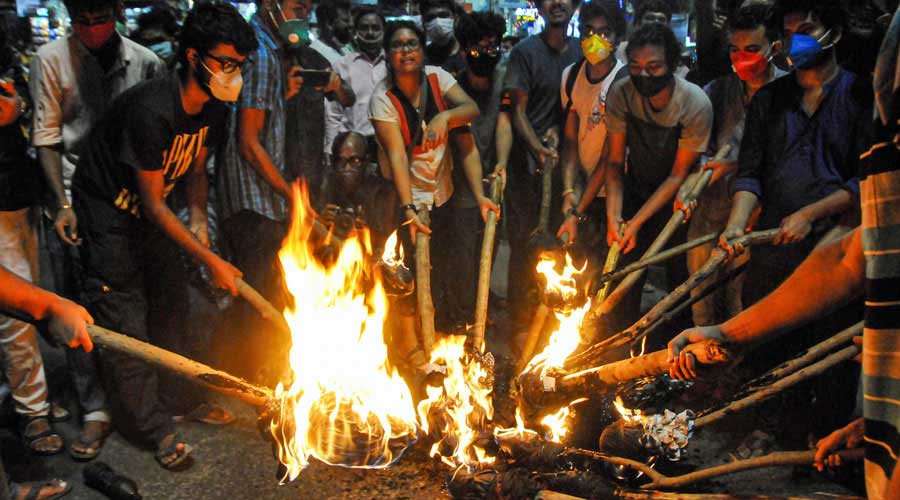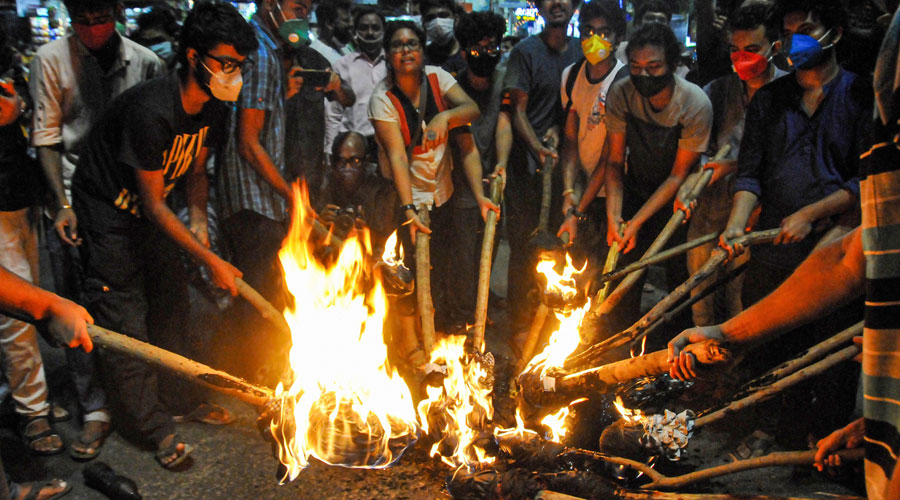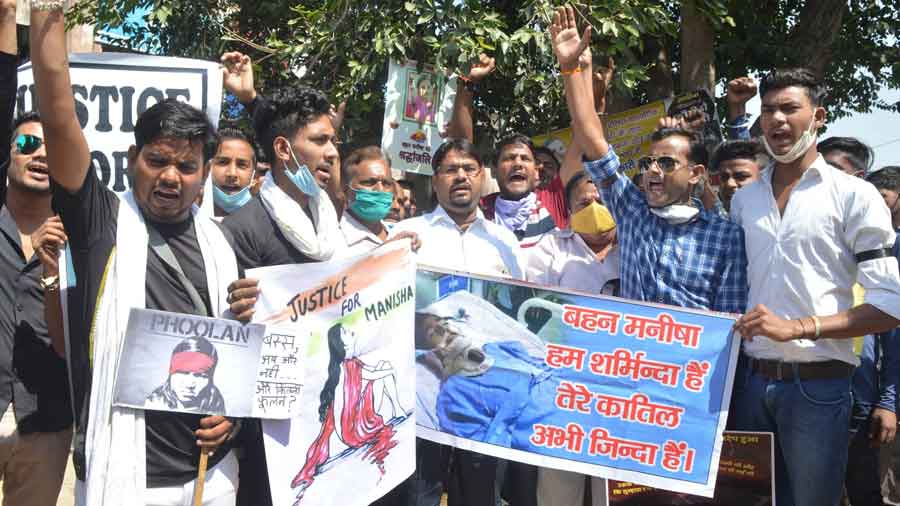Cases of atrocities against Dalits are diluted at every stage from registration of complaint to filing of chargesheet to the trial, leading to acquittals in 75 per cent cases, a study has found.
The findings mirror the experience so far with the Hathras gang-rape-and-murder case, said Rahul Singh, director of the National Dalit Movement for Justice (NDMJ), a civil society group that studied cases of atrocities against Dalits registered between 2009 and 2018.
“Our experience shows that when it comes to atrocities on Dalits, from the day of incident the police resort to various machinations to dilute the seriousness of the violence and shield the accused from prosecution,” Singh said.
“When the case reaches the courts, the victims have to face bias from different court actors,” he added, specifically citing discrimination from the special public prosecutors appointed to represent the victims.
According to the family of the 19-year-old Dalit victim in Hathras, the Uttar Pradesh police took eight days to invoke the charge of gang rape and five days to arrest the accused.
The police are also accused of denying the victim the best possible treatment and then hijacking her body from hospital and burning it after locking her family at their home.
“The officials involved in the illegal forced cremation and shoddy investigation must be punished under Section 4 of the SC/ST Prevention of Atrocities Act. The government must ensure that all the mandatory provisions, including the appointment of a special prosecutor of the victims’ (family’s) choice, are implemented,” Singh said.
The Atrocities Act, enacted in 1989 and amended in 2015, mandates immediate arrest of the accused, chargesheets within 60 days, the completion of the trial within another next 60 days in “exclusive special courts” or “special courts”, and compensation for the victims.
⚪ According to the study, the police tend to register cases fit for the Atrocities Act under other laws. It found that of the 391,952 crimes by upper castes against Dalits reported between 2009 and 2018, some 32.5 per cent were registered under laws other than the Atrocities Act.
⚪ While the act sets a 60-day deadline for the filing of the chargesheet, data shows that the number of Atrocities Act cases where the police investigation remained pending rose from 6,095 in 2009 to 16,300 in 2018.
⚪ Slow investigation and delayed chargesheets lead to slow disposal of cases, allowing ample time to subject the victims to pressure, threats or force to withdraw the cases.
⚪ Another consequence of such delays in serious offences is that they virtually ensure that the accused receive bail.
⚪ While the act requires every district to have an “exclusive special court” to try Atrocities Act cases, state governments have been designating ordinary courts, already overburdened with cases, as (non-exclusive) “special courts”. Currently, the country’s 702 districts have only 157 exclusive special courts for Atrocities Act cases.
In a 2014 study that the NDMJ had conducted on five such special courts, the discussions with undertrial victims and witnesses raised questions about the role of many of the government-appointed special public prosecutors (SPPs) who represent the victims.
‘Prosecutor bias’
Many SPPs do not allow the victims or witnesses to enter their chambers, and do not brief or prepare them well about the court processes, the study found. It concluded that many SPPs were biased against the victims and believed they were filing false cases.
Data that the study collated from National Crime Records Bureau reports show a 6 per cent rise in atrocities against Dalits, from 20.1 reported crimes per one lakh Dalits in 2009 to 21.3 reported crimes in 2018.
While 33,594 atrocities were reported against Dalits in 2009, the number was 42,793 in 2018 — an increase of 27 per cent. This period witnessed 12,750 reported rapes of Dalit women.
Among the Atrocities Act cases where judgments were delivered during this period, the overall conviction rate was 25.2 per cent.
A teacher at a central university who has been researching the subject said there has always been a correlation between the caste of the accused and that of the chief minister or some other dominant political figure of the state.
“There’s a clear correlation between the castes of the perpetrators and the political bosses. The legal action gets defused at every level,” Singh said.
About the Hathras case, he said: “The police were in a hurry to cremate the body and prevent lawyers from meeting the victim’s family.”
Among the well-known cases that had ended in the acquittal of most of the accused was the killing of 34 Dalits in Bihar’s Aurangabad district in the year 2000.
The Ranvir Sena, a private army of landlords, was accused of the massacre. The Aurangabad special court awarded life terms to 10 people in 2007 but Patna High Court later acquitted nine of them.













